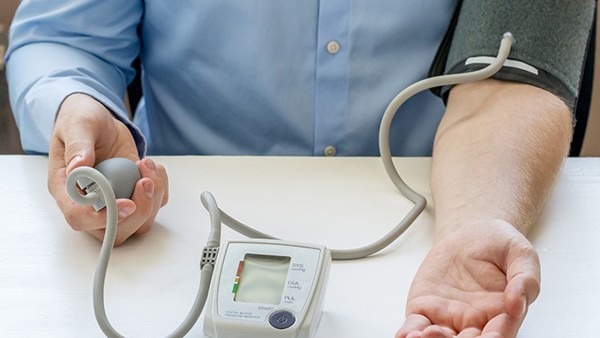What Patients with Pneumonia Need to Pay Attention To

Pneumonia is an infection of the lungs that can be caused by bacteria, viruses, or fungi. It can range from mild to severe, and in some cases, it can be life-threatening.
There are a number of things that patients with pneumonia need to pay attention to in order to improve their chances of recovery. These include:
Getting plenty of rest. Rest is essential for the body to heal. Patients with pneumonia should get as much rest as possible, and they should avoid strenuous activity.
Drinking plenty of fluids. Fluids help to thin the mucus in the lungs, making it easier to cough up. Patients with pneumonia should drink plenty of fluids, such as water, juice, or soup.
Taking antibiotics. Antibiotics are used to treat bacterial pneumonia. Patients with pneumonia should take their antibiotics exactly as prescribed, and they should not stop taking them even if they start to feel better.
Using inhalers. Inhalers can help to open up the airways and make it easier to breathe. Patients with pneumonia may be prescribed an inhaler to use at home.
Getting vaccinated. There are vaccines available to prevent some types of pneumonia. Patients with pneumonia should talk to their doctor about getting vaccinated.
In addition to these general tips, there are a number of specific things that patients with pneumonia need to pay attention to depending on the severity of their condition.
Mild pneumonia. Patients with mild pneumonia may be able to recover at home. They should follow the general tips above, and they should also:
Monitor their symptoms and call their doctor if they worsen.
Avoid contact with people who are sick.
Get plenty of rest.
Drink plenty of fluids.
Take antibiotics as prescribed.
Moderate pneumonia. Patients with moderate pneumonia may need to be hospitalized. They will receive antibiotics and other treatments in the hospital, and they will be monitored closely by their doctors.
Severe pneumonia. Patients with severe pneumonia may need to be admitted to the intensive care unit (ICU). They will receive antibiotics and other treatments in the ICU, and they will be closely monitored by their doctors.
Pneumonia can be a serious infection, but it can be treated successfully if it is diagnosed and treated promptly. Patients with pneumonia should follow their doctor's instructions carefully and pay attention to the specific things that they need to do to improve their chances of recovery.
Symptoms of Pneumonia
The symptoms of pneumonia can vary depending on the severity of the infection. Mild pneumonia may cause only mild symptoms, such as a cough, fever, and chills. More severe pneumonia can cause more serious symptoms, such as shortness of breath, chest pain, and confusion.
The most common symptoms of pneumonia include:
Cough
Fever
Chills
Shortness of breath
Chest pain
Confusion
Fatigue
Loss of appetite
Nausea
Vomiting
If you have any of these symptoms, it is important to see your doctor right away.
Causes of Pneumonia
Pneumonia can be caused by a variety of different bacteria, viruses, and fungi. The most common cause of pneumonia is bacteria, such as Streptococcus pneumoniae and Haemophilus influenzae. Viruses, such as the influenza virus and the respiratory syncytial virus (RSV), can also cause pneumonia. Fungi, such as Pneumocystis jirovecii, can also cause pneumonia, but this is more common in people with weakened immune systems.
Risk Factors for Pneumonia
There are a number of factors that can increase your risk of developing pneumonia, including:
Age. People over the age of 65 are at increased risk of developing pneumonia.
Chronic health conditions. People with chronic health conditions, such as heart disease, diabetes, and lung disease, are at increased risk of developing pneumonia.
Weakened immune system. People with weakened immune systems, such as those with HIV/AIDS or those who are taking immunosuppressive medications, are at increased risk of developing pneumonia.
Smoking. Smoking damages the lungs and makes them more susceptible to infection.
Alcohol abuse. Alcohol abuse can weaken the immune system and make people more susceptible to infection.
Complications of Pneumonia
Pneumonia can lead to a number of complications, including:
Pleural effusion. A pleural effusion is a collection of fluid in the space between the lungs and the chest wall.
Empyema. An empyema is a collection of pus in the space between the lungs and the chest wall.
Lung abscess. A lung abscess is a collection of pus in the lung tissue.
Sepsis. Sepsis is a life-threatening infection that can occur when bacteria from the lungs spread to the bloodstream.
Prevention of Pneumonia
There are a number of things you can do to help prevent pneumonia, including:
Get vaccinated. There are vaccines available to prevent some types of pneumonia. Talk to your doctor about getting vaccinated.
Wash your hands frequently. Washing your hands frequently with soap and water can help to prevent the spread of germs.
Avoid contact with people who are sick. If you are exposed to someone who is sick, try to avoid close contact with them.
Quit smoking. Smoking damages the lungs and makes them more susceptible to infection.
Eat a healthy diet. Eating a healthy diet can help to boost your immune system and make you less susceptible to infection.
Exercise regularly. Exercise can help to improve your overall health and make you less susceptible to infection.
Get enough sleep. Getting enough sleep can help to boost your immune system and make you less susceptible to infection.
Pneumonia is a serious infection, but it can be treated successfully if it is diagnosed and treated promptly. By following the tips above, you can help to reduce your risk of developing pneumonia and improve your chances of recovery if you do develop it.
The above is all the content that the editor wants to share with you. I sincerely hope that these contents can bring some help to your life and health, and I also wish that your life will be happier and happier.
Topic: #with #pneumonia #what- • How people with autism practice imagination
- • Boiled raw oysters with black pepper for your boyfriend. How to cook raw oysters
- • How to deal with blue spots on both sides of the bridge of the nose
- • Recommended 9 foods with the best iron supplement effects
- • How to deal with growing pains in children













